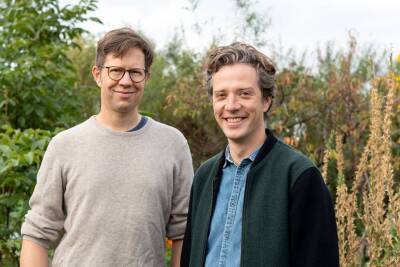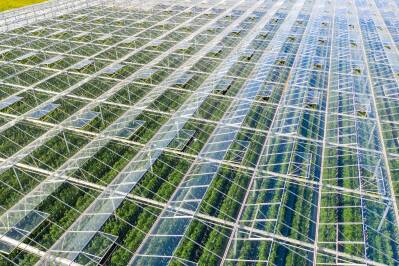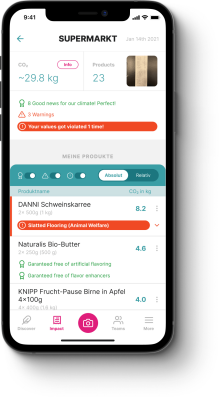“This is the only way to ignite the spark for a big movement and actually solve the problem quickly. The good news: it is possible!” says Alexander Piutti, founder and CEO of SPRK.global.
The Farm-Food-Climate Challenge is looking for solutions for climate-positive agriculture and nutrition. SPRK.global is one of these solutions: the start-up’s vision is to rapidly redistribute surplus food that is still edible by using technology, thereby eliminating food waste throughout the supply chain in the long term. The solution they are relying on? Artificial intelligence for match-making and local processing of surplus food.
Every year 1.6 billion tons of food ends up in waste
Food waste is a global problem: 1.6 billion tons of food are wasted worldwide every year (source: Boston Consulting Group), 12 million tons of it in Germany (source: Bundesministerium für Ernährung und Landwirtschaft). In addition to pure food waste, valuable resources such as land, water and energy are also wasted. SPRK.global wants to change this with a specially developed distribution technology using artificial intelligence.

The distribution platform connects the systems of the participating suppliers. It constantly learns and uses patterns to understand why food surpluses occur in the supply chain. Supply and demand of potential buyers are matched and feedacked to the supply partners. This process allows for a demand-driven and speedy redistribution of surpluses. In addition, SPRK.global processes surplus food into new products that are returned to the retail shelves – for example, ketchup or tomato soup made from surplus tomatoes. SPRK.global targets producers, wholesalers and retailers. In addition, the start-up also works with commercial and non-profit organizations on the receiving side. These include, for example, the SOS Kinderdorf in Berlin.
After an operational test phase in Berlin starting in spring 2019, SPRK.global was officially founded in March 2020. The goal is to make the capital “foodwaste-free” in two to three years. In its first business year, the company was already able to redistribute over 100 tons of food in Berlin, which translates into a CO2 saving of around 250 tons.
An enormous contribution to climate protection
Every piece of food thrown away means unnecessary CO2 emissions. SPRK.global now demonstrates that digitalization and technology can help conserve resources by using artificial intelligence, making it one of the first companies to use this approach to create positive change in the food industry. What makes SPRK.global special and other important facts can be found in the video:
With its innovative technology approach, SPRK.global came first place among 2,400 international applicants worldwide in the XTC Extreme Tech Challenge (category “Smart Cities”) in July 2020, the largest “Tech For Good” competition for sustainable start-ups.
About the Farm-Food-Climate Challenge
In the spirit of the European Green Deal, the Farm-Food-Climate Challenge has sought 100+ approaches to climate-positive agriculture and nutrition. For the challenge, the ProjectTogether team and partners drew on the experience and networks from the successful #WirVsVirus hackathon. Around 28,000 people took part in the world’s largest hackathon within 48 hours and worked together on over 1,500 solutions to the challenges of our time. Over 150 projects subsequently made their way into implementation.
Similarly, the Farm-Food-Climate Challenge offers a platform for innovative initiatives from society that want to create sustainable development along the entire value chain of the agricultural and food sector. Designers of tomorrow’s ecologically and economically sustainable world were invited to submit their ideas and solutions by the end of July 2020. Together with experts and partners from business, politics and civil society, ideas were then tested and validated in practice for nine months. Like the #WirVsVirus Hackathon, the Challenge is supported by the Vodafone Institute.



